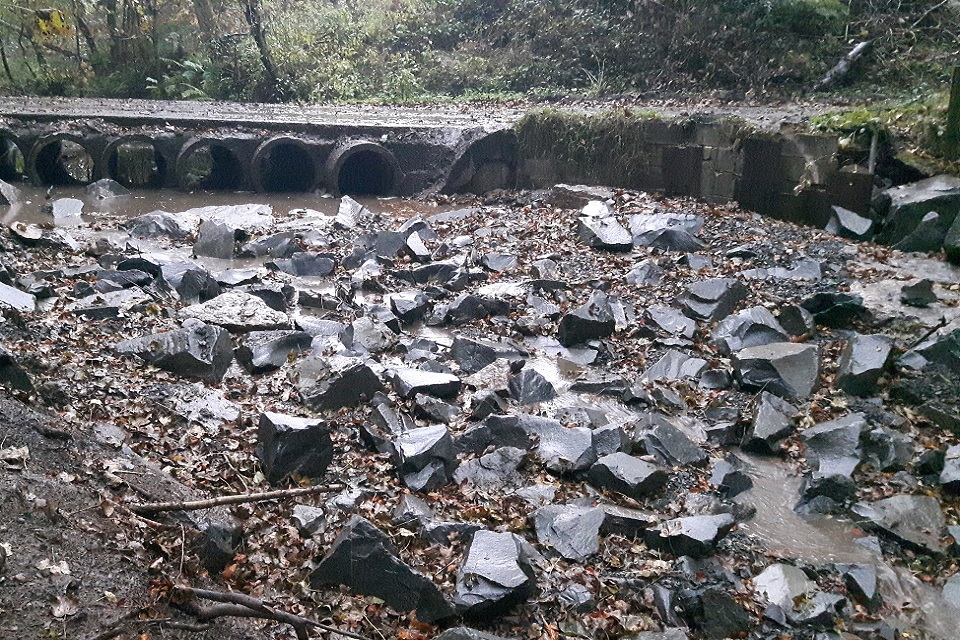Press release: Melksham Metals boss to pay £1.99 million or be jailed for 8 years
The owner of a Wiltshire scrapyard and recycling company has been ordered to pay almost £2 million he made from running an illegal waste site in Melksham.
In July, Lee Hazel appeared before Swindon Crown Court where he was warned he’d face an 8-year prison sentence if he failed to pay the full amount owed under a confiscation order made under the Proceeds of Crime Act 2002.
The ruling marked the culmination of a 5-year investigation into Lee Hazel and Melksham Metals Recycling Ltd by the Environment Agency and Wiltshire Police. Wiltshire Police conducted the financial aspects of the investigation
The original confiscation order was for £2.74 million, but this figure was reduced at Swindon Crown Court following an application to amend the earlier judgement under a legal clause known as the ‘Slip Rule.’
Hazel’s lawyers successfully argued it had been wrong to include a figure for VAT when calculating how much their client had benefited from crime. They also alleged that, in preparing its prosecution, the Environment Agency had mistakenly included invoices for ferrous metals.
After hearing evidence for the defence, Judge Tim Mousley QC, reduced the confiscation order to £1.99 million from the original figure of £2.74 million.
Hazel was warned on several occasions about unlawful waste activities including the illegal disposal of waste on farmland and depositing and processing waste without an environmental permit. He is both the owner and sole director of the company.
An Environment Agency spokesperson said:
These were serious offences committed by a waste operator who has little respect for the law and the environment. He was motivated by financial gain and carried out unauthorised activities over a number of years.
This case should serve as a warning to anyone in the waste industry who thinks they can flout the law. Where we have the evidence, we won’t hesitate to prosecute offenders.
Investigations revealed that he and his company dumped stone off-cuts and sludge at a farm on the outskirts of Melksham beside an old canal, as well as carrying out unauthorised activities at his Station Yard premises in Bath Road, Melksham.
In February 2016, Hazel received an 18-month prison sentence, suspended for two years, for running an illegal waste operation at Station Yard and for the dumping of waste at a farm. The court heard the Environment Agency had revoked Melksham Metals’ operating licence and the site had closed down.
Hazel was caught after an enforcement officer from Wiltshire Council found various waste materials including chalky stone, tarmac road planings and concrete pipes dumped in fields at Queenfield Farm beside the disused Wiltshire to Berkshire Canal. The officer followed a line of ‘chalky liquid’ in the road outside the farm back to Station Yard. He reported the incident to the Environment Agency.
Last year’s hearing followed 2 earlier trials at Swindon Crown Court in June 2014 when Hazel and the company were found guilty of 4 charges in relation to the dumping of waste at Queenfield Farm, Melksham.
The court heard Melksham Metals had a contract to remove waste stone from a local stonemasons yard. The waste should have been taken to a licensed site, but was dumped at Queenfield Farm instead.
In November 2015 Lee Hazel and the company pleaded guilty to a further 5 charges each relating to unauthorised waste activities at his Station Yard premises.
They admitted the unauthorised treatment of controlled waste at Station Yard from 2004 to 2008, breaching a waste control licence, operating a regulated facility without a permit and having waste without authorisation.
Hazel was warned that even if he was sent to prison, he would still have the debt hanging over him.
In addition, Melksham Metals Recycling Ltd was ordered to pay a £100 fine for each of the 7 offences it pleaded guilty to. Only a nominal fine was imposed on the company because of the size of the confiscation order.
